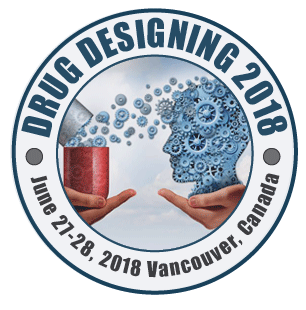
Alan Low
BioPro Biologics Pharmacy, Canada
Title: Pharmacists role in helping patients with biosimilars, education, adherence and appropriate monitoring
Biography
Biography: Alan Low
Abstract
Patient acceptance of biosimilars over innovator biologics continues to be marginal in many parts of the world. Biologics are complex drugs which are created using recombinant DNA technology. Developing identical copies of these molecules is not possible. Unlike generic versions of chemical molecules which are the same as the innovator version, the process of manufacturing biologic molecules by nature means the molecules produced by diff erent manufacturers are not alike. After patent expiry of an innovator biologic, a manufacturer is legally able to produce and market a biosimilar of the innovator biologic, however, production details and manufacturing processes are not released by the originator. Th erefore, a biosimilar is a biological product that is similar to the innovator version and has no clinically meaningful diff erences as shown by structural comparisons and clinical trials comparing the products. A biosimilar is demonstrated to be similar to its reference product by extensive analysis and studies comparing characteristics such as purity, chemical activity, potency and bioactivity. Minor differences between the reference product and the biosimilar product in clinically inactive components are acceptable. These minor diff erences are a normal occurrence during the manufacturing process for both innovator products and biosimilars. The regulatory authorities control and monitor lot-to-lot diff erences in the production of these medicines. Pharmacokinetic and pharmacodynamic studies are carried out to assess the comparability of the responses by human patients, including assessment of clinical immunogenicity. Th e duration, level and detail of clinical trials is abbreviated which allows for a lower development cost. When a patient is prescribed a biosimilar, they are unaware of the implications of that treatment. Often, the patient is not provided with a complete explanation of the choice of therapy selected for the patient’s condition and treatment. Without appropriate patient-centered guidance and education, most patients may perceive a biosimilar is not as effective as the innovator biologic. Even more concerning is the patient who agrees to begin therapy with a biosimilar and then is told by a friend or relative that they are not receiving an originator drug which casts doubt and changes expectations of the therapy’s effi cacy and side eff ects. Many of these patients may return to the physicians asking for an innovator biologic. This scenario can be signifi cantly improved with the involvement of pharmacists who can help educate and guide the patient as well as help ensure the patient adheres to the drug therapy and the care plan. Pharmacists can help patients understand the complexities of these biologic therapies and also navigate the payment process.

